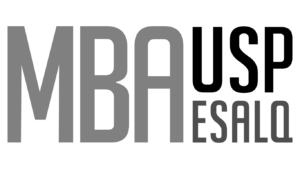We may not even realize, but all our decisions, even the smallest ones, are made based on our professional and personal values. Values are a set of principles that orientate, guide and shape behavior and can generate internal impacts – positive and negative – depending on the context you’re in or the choice made.
A person who has family as one of their stronger values can be unhappy and dissatisfied in situations of distancing. In another case, someone who has security as a priority value can be stressed in places with more violence.
Our personal values are built throughout life and they influence the environment and the people with whom we live. So, it is not strange that our values are close to the ones from our parents or a social group we’re in. Besides, values can weaken or strengthen according to the experiences we live.
Professional values and anchors
No value can be considered permanent, because they become more or less of a priority according to the moment we’re going through. Professional values, for example, are guided by what we want for our careers.
And when we talk about career, we also have the anchors, that are able to demonstrate what our professional values really are. Curiosity: the creator of the anchors is Edgar Schein, specialist in organizational development and former professor of Management at Sloan School Of Management- MIT.
“The name anchor really connects to the idea of a boat. When we are in a professional environment in which values can be exercised, it is like we throw an anchor and the will to migrate the boat elsewhere ceases to exist. We want to stay in the company and grow in it”, explains Carol Shinoda, a professor of the MBAs USP/Esalq.
Without room to practice our professional values and, especially, when we have no autonomy to exercise our role, it is very easy to develop the will to migrate and retrieve the anchor.
What motivates me?
Professional and personal values are very subjective, they’re even difficult to recognize. All decisions, as well, are operated by these values, although we are not aware of it.
“When we use anchors to understand our values, they should not be considered a great discovery, but rather a recognition of how we act and why it happens. Understanding the values is knowing how to name what happens internally”, comments Talita Cordeiro, specialist and career consultant.
When we better understand our professional and personal values, we know better how we make our decisions and what we feel with each of them. According to Talita, this doesn’t mean that we will significantly change the quality of our decisions, but at least we can avoid choosing those that generate frustration.
To Carol, understanding both professional and personal values helps change the vision that life needs to be difficult to be challenging. “This idea creates a high risk of professional choices that will bring frustration, because they are not a real challenge, but, instead, a choice to suffer through something we don’t like”, she warns.
To her, it is possible to have challenges doing something that gives pleasure and allows autonomy, growth and exploration of knowledge. Reflection can overthrow beliefs that refrain us from finding the best professional path.
Values or anchors?
It can be both. Both are responsible for showing what motivates us professionally. If you want to find out which anchor represents your profile, we recommend doing the career anchors test. And here is a summary of the 8 professional values you find in the test:
- Pure Challenge: in this anchor are the professionals that define success as overcoming impossible obstacles or as the ability to solve insoluble problems. They are people who need to feel they can conquer anything.
- Service to a cause: people with this anchor are guided in their career by values that can be put in their work. They turn to the values and dedicate themselves to causes, more than to their talents and skills. They are professionals who want, in some way, to contribute to a better world through their work.
- Security and Stability: a person with this predominant anchor makes choices with a tendency to low volatility, they are always looking for guarantees related to security, and value benefits and think about retirement. Their focus is on long-term jobs and stability.
- Entrepreneurial Creativity: in this anchor are professionals with instincts for the creation of new businesses and organizations. They are not necessarily creative and artistic people, but rather, they have an entrepreneurial spirit, they want to establish or restructure their own businesses.
- Autonomy and Independence: those who strongly have this anchor feel the need to own their own destiny, do things in their way, and therefore will organize their professional life around work that provide more choice and decision-making power.
- Lifestyle: they are people who want, above all, flexibility, so they look more at the attitude of the company than to the work schedule itself. The difference between this and the anchor of autonomy is that these lifestyle individuals adapt well to the organizational environment, with their rules and restrictions, but they want to have more flexible work options.
- Technical and Functional Competence: technically anchored people are committed to a career of expertise. They are motivated when they are experts in a given subject, seek challenging jobs and want to test the knowledge and skill they have in their area.
- General Management Competence: they are people who want to lead and have as motivation to reach the top of the corporate hierarchy. To them, expertise is a trap, because they understand the importance of knowing the functional areas, but they don’t seek to develop technically, since they want the general management function.
How about you, do you know what your professional values are?

